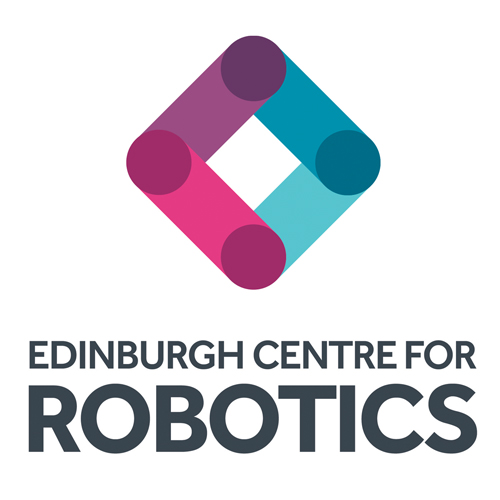13:00-13:25 - George Kamaras - Data-Driven Modelling and Control of Deformable Materials
Abstract: Soft, amorphous and deformable materials are every-where. Robots must handle soft tissue in surgical settings, or even in the kitchen. Such deformable materials must be described in terms of their high dimensional state, and the nonlinear dynamics in that state space. Indeed, it is often unclear what that high-di-mensional state space should be, since every physical detail or property could in principle be considered a dimension in the model. Moreover, we are limited in our ability to measure the evo-lution of systems in such a state space - which is important for identification and control.
In this talk we will discuss modelling deformable materials using Graph Networks. We will demonstrate how state of the art de-formable material modelling algorithms fail to model the disconti-nuities caused in a soft body due to a cutting action, like a surgical incision. We are addressing this via potential extensions to the de-formable material modelling toolkit, drawing on several ideas from the computer graphics community. The long term goal is to apply this modelling in service of control, addressing difficulties of de-signing controllers for such manipulation tasks by utilising data-driven methods that utilise such simulation models.
13:30-13:55 - Emilyann Nault - Socially Assistive Robots and Sensory Feedback for MCI/Dementia Cognitive Rehabilitation
Abstract: My research goal is to increase engagement with cognitive rehabilitation tasks for individuals with mild cognitive impairment (MCI) and dementia. Improving engagement in this area can aid in slowing the rate of cognitive decline, thus helping to alleviate the growing pressure on both care facilities and the healthcare system as a whole. This talk will highlight the design of the proposed system in order to reach this goal, particularly the novel use of sensory feedback and physiological sensors. I will also review the user-centered approaches being employed to shape this design (i.e. interviews with therapists) before concluding with the plan for implementation and evaluation of the robotic system.
14:00-14:25 - Isobel Voysey - Developing a minimal animate companion animal robot
Abstract: Zoomorphic robots are a promising tool for use in educa-tional interventions with children about animal welfare. Interac-tions with a robot designed for this purpose should not only in-crease knowledge of animal needs, but also generate mental health benefits like those seen in human-companion animal interactions. In this talk I will draw out design principles learnt from other zoomorphic robots and discuss the idea of minimal animacy before outlining potential soft robot designs and initial experiments to investigate human-robot interactions in the context of animal welfare education.
14:30-14:45 - Break
14:14-15:10 - Martin Ross - An Adaptive Robot Coach for Sports and Rehabilitation Coaching: Design and Implementation
Abstract: My PhD project focusses on how and to what extent an adaptive robotic coach can be used to aid the process of long-term rehabilitation after stroke and adherence to repetitive solo practices in squash. In this talk I will give details on the mixed methodology approach, novel in the context of designing for HRI, used to design and implement the robotic coaching system, before outlining my planned evaluation strategy.
15:15-15:40 - Arturas Straizys - Understanding and reproducing wide local surgical excision
My research project focuses on autonomous surgical cutting of soft tissues with a scalpel. The automation of this task promises improved precision, consistency and patient’s post-surgical experience. However, the robotic cutting of soft tissues is an extremely challenging problem, mainly due to the overwhelming complexity of soft tissue deformation and separation processes. Intriguingly, human surgeons demonstrate a remarkable robustness at cutting tasks without access to a detailed model of biological tissues. In this project we aim to capture the implicit behaviours underlying surgical cutting and to uncover the control structure that shapes this complex bimanual motor behaviour in the task of skin lesion excision.

